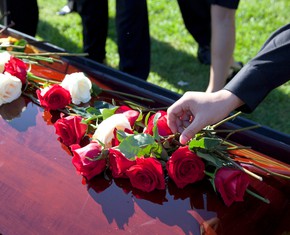The views expressed in our content reflect individual perspectives and do not represent the authoritative views of the Baha'i Faith.
Today, America has many different immigrant cultures that are in the process of mixing and merging. I started to wonder: what should we think of as “American” cultural values? Which values stand out as the foundation for the process of cultural integration?
We desperately need values from God to provide guidance and allow us to better understand our reality, and empower the many different groups of people in our society to come together and develop a new culture — a rich, just, and spiritual culture.
As someone who grew up in Taiwan, I enjoy looking back at Chinese culture’s ancient teachings and history. There, the family and educational system are based on three main sources of teachings: Confucianism, Taoism, and Buddhism.
Moral values, I found, play an important role in sustaining and enriching culture. Their influence appears in language, literature, and history — even popular TV shows. They have sustained cultural values in all levels and maintain the social order.
For example, Confucius is the greatest teacher in Chinese History. He made ancient Chinese teachings systematic and made education available for everyone through schools or through storytelling. He outlined five key relationships: between the government and citizens, between parents and offspring, between husband and wife, among siblings, and among friends. He also pointed out certain responsibilities and ethics for both sides to follow and taught that it is not a man’s social standing that makes him noble or abased, but rather his virtues.
These teachings continued to be taught, even when the country was governed by different dynasties, such as the Han, the Mongolians or the Manchurians. All found these values applicable and allowed themselves to be influenced by them, and they were the foundation of the process of integration that occurred in China. To me, when values line up with God’s will — even if they fall short of reaching divinity in God’s creation — they continue to be blessed and provide values that strengthen a spirit in the world. That spirit enhances culture over time, and the diverse backgrounds and races that interact in this spirit make the culture even richer.
Ethical or spiritual teachings have been given to every society. Of course, God’s teachings are not just moral — they help us reach a realm that the human mind can’t comprehend. But with God’s bestowals, such as the power of intellect, man can discover the mysteries of the kingdom of God.
Baha’u’llah, whom Baha’is believe is the divine teacher of this age, brought many of these sacred teachings. He taught that mankind needs to seek God and have a relationship with Him, “For in [man] are potentially revealed all the attributes and names of God to a degree that no other created being hath excelled or surpassed.” Baha’u’llah taught that we have been endowed with the capacity to acquire virtues that can help us unite the world; that spiritual education is more needed than ever, in order for mankind to discover how many gifts we have been given and how lofty a station we can rise to.
The Baha’i teachings tell us that whether a man acts nobly or not is due to the spiritual virtues he has acquired and the responsibility he has taken on for the world. God desires us to look at the world as one country and care for our brothers and sisters as one family.
But when the teachings of God have been forgotten our values become weak. Then, as Lao Tzu wrote in Dao De Jing, “When the great Dao is abandoned, charity and righteousness are only in appearance. When intellectualism arises, hypocrisy is close behind. When there is strife in the family unit, people talk about brotherly love. When the country falls into chaos, politicians talk about patriotism.”
When material value overpowers our spiritual values, we make knowledge profitable instead of treating it as the grace of God to share. Profit turns into greed, injustice, and thievery. We lose a sense of security. Charity work is connected to name and fame. People glorify themselves instead of God, the source of everything. Competition and discord arise. Away from God’s teachings, we misunderstand the true value of living.
The Baha’i writings explain that to overcome this period of darkness, “We must arise to service in the world of morality, for human morals are in need of readjustment. We must also render service to the world of intellectuality in order that the minds of men may increase in power and become keener in perception, assisting the intellect of man to attain its supremacy so that the ideal virtues may appear.”
When we look at human history we can see how, with the right values as a foundation for the individual, the body of humanity becomes a living spirit.
















Comments
Sign in or create an account
Continue with Googleor